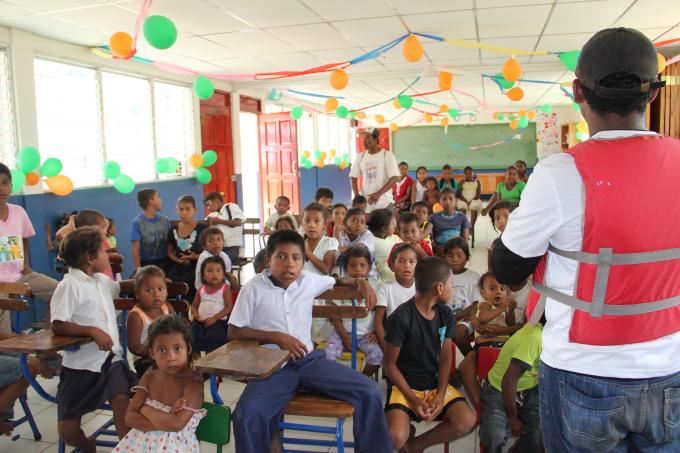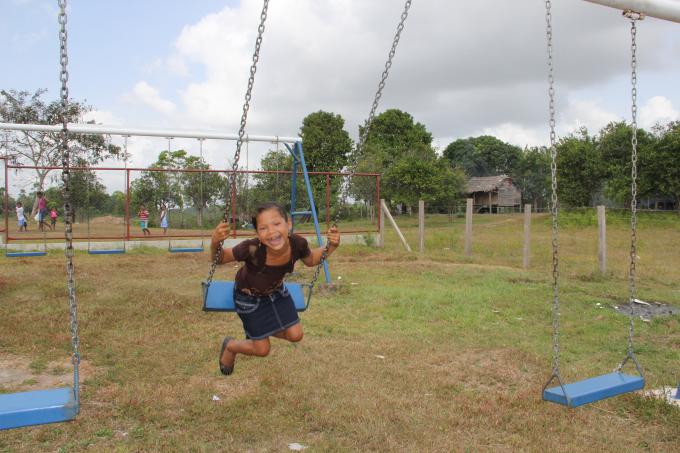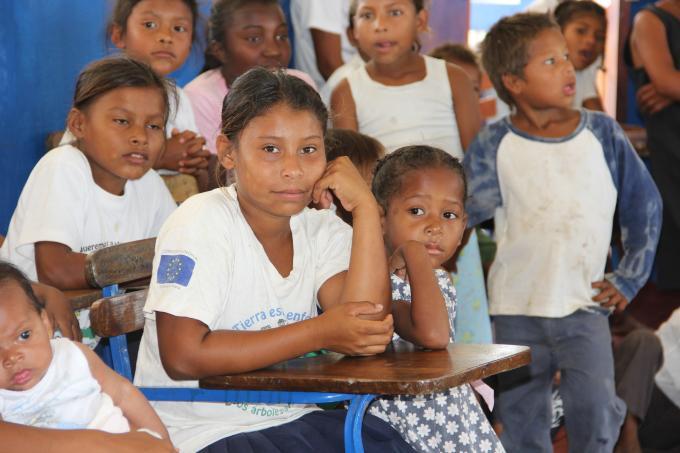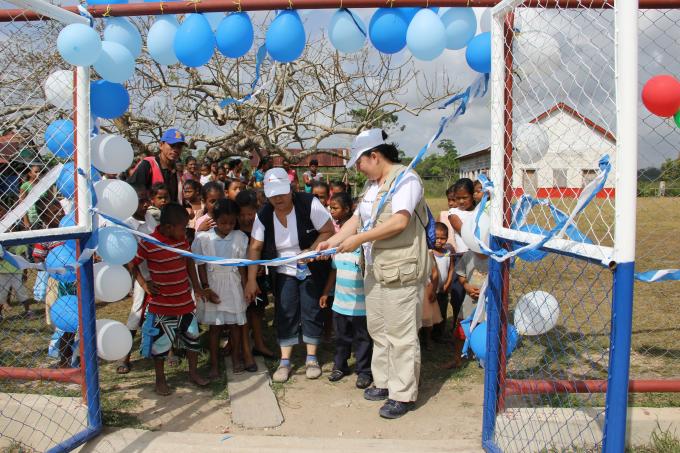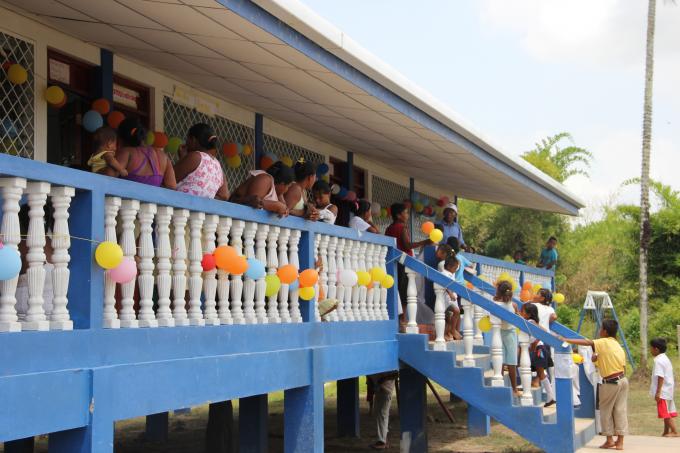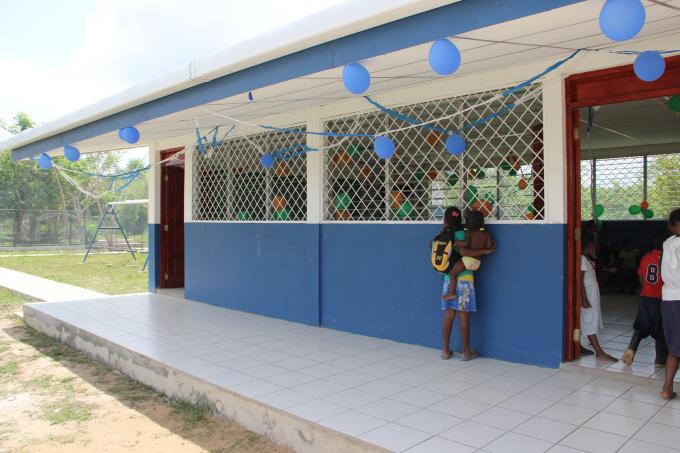 Nicaragua
Nicaragua
Languages
9 schools rebuilt by SC in excluded communities
- In indigenous communities of Prinzapolka
- Education in Conflict project
03.04.2014. Managua, Nicaragua. Andrea Núñez-Flores Rey
Save the Children rebuilt nine schools in communities located in the Prinzapolka River, in the North Atlantic Autonomous Region (RAAN) in March. Investment in infrastructure included the reconstruction of schools in indigenous communities with all the necessary infrastructures: latrines, water installation, fencing, playground and access facilities. Save the Children (SC) funded the total of the works with US$ 160.725,17 and the partner Christian Medical Action (AMC) implemented the project.
"We really like the new school. It has everything!" say children of Auhya Pura community; 82 students from kindergarten to 6th primary attend this school. "It is the first time we have a real school in this community. Before, the children had to study in the church when it was raining, and there were no tables”, explains the teacher Sefelino Moodi.
In each opening, girls, boys, mothers, teachers and community leaders participated in a cheerful environment. "We are very excited. The school is very nice and in good conditions. I have observed that now more children come. Currently, they have the proper atmosphere to study. We are so grateful to Save the Children and AMC for the support and funding”, says Flora Rodriguez, teacher in Auka Mango, where 126 children attend preschool through 6th grade.
"Do you like the new school?" asks Marvin Fuentes, an AMC technician. "Au!" (“Yes” in Miskitu language) answer the children of Bethel, with 84 students, 39 of whom are girls.
In 2013, Save the Children rehabilitated five schools and built a new one in communities of the river Prinzapolka. In addition, in 2014 we started with the construction of another school in Apavonta community.
Education in Conflict project
Besides infrastructure, Education in Conflict project trained teachers and parents. "When we arrived here, the schools were considered by the people of the community as a responsibility of the Government, then they did not bother to care. Therefore, AMC are insisting to the public regarding the need to care and maintain the schools”, says Luz Maria Sequeira, Director of Development and Quality Program of SC.
We worked in collaboration with partner organizations Books for Children, FUNARTE and CAPRI to conduct other training. "Everyone is responsible for a type of training but we have common goals because it forces you to organize. Thus, the effort is more efficient, feedback is more fluid, we teach each other, and it is more sustainable. For example, CAPRI are experts in Protection Codes and they led this action. Last year, an extra effort was made to bring together all the schools directors of Prinzapolka river to discuss the prohibition of physical and humiliating punishment in the classroom”, says Luz Maria Sequeira.
"I love my new school and teacher. She does not hit us, is very affectionate. Before, many teachers used to beat kids with the rule" says Yarixza, an eight years old girl of Auka Mango community.
